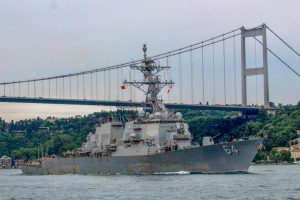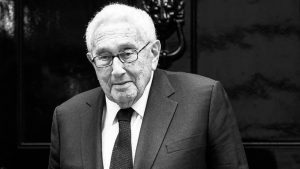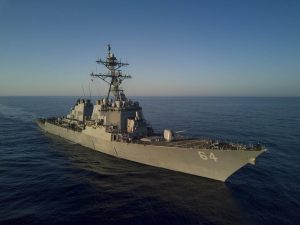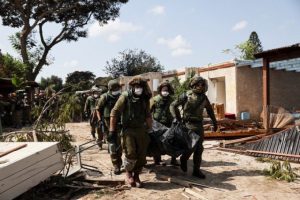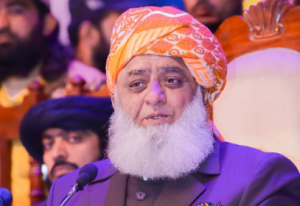The Taliban said Wednesday they had captured the strategic border crossing of Spin Boldak on the frontier with Pakistan, continuing sweeping gains made since foreign forces stepped up their withdrawal from Afghanistan.
Also read: If talks with Taliban fail, Afghanistan may seek India’s military help
The situation on the ground could not immediately be verified, with Afghanistan’s interior ministry denying the report even as social media was abuzz with pictures of Taliban fighters looking relaxed in the frontier town.
Spin Boldak is the latest in a string of border crossings and dry ports seized by the Taliban in recent weeks, with the insurgents looking to choke off much-needed revenue from the government in Kabul while also filling their own coffers.
As Kabul’s grip over the country appeared to further loosen, former US president George W. Bush slammed current White House incumbent Joe Biden’s decision to withdraw all troops.
Civilians were being left to be “slaughtered” by the Taliban, Bush told German broadcaster Deutsche Welle on Wednesday.
“This is a mistake… They’re just going to be left behind to be slaughtered by these very brutal people, and it breaks my heart,” he said.
Also read: Taliban kill 22 unarmed Afghan soldiers as they try to surrender: Reports
The Bush administration launched the US invasion into Afghanistan in 2001 that toppled the Taliban government following the September 11 attacks on US soil by Al Qaeda militants.
Along with his key security advisors, Bush was later blamed for a series of miscalculations in Afghanistan that led to the revival of the Taliban movement.
The seizure of the vital border crossing with Pakistan follows days of heavy fighting across Kandahar province, where the government was forced to deploy commando fighters to prevent the fall of the provincial capital even as the insurgents inched closer to taking the frontier.
In a statement, insurgent spokesman Zabihullah Mujahid assured traders and residents there that their “security is guaranteed”.
But Afghan officials insisted they were still in control.
“The terrorist Taliban had some movements near the border area… The security forces have repelled the attack,” interior ministry spokesman Tareq Arian told AFP.
Residents disputed the government’s claims.
“I went to my shop this morning and saw that the Taliban are everywhere. They are in the bazaar, in police HQ and custom areas. I can also hear the sound of fighting nearby,” said Raz Mohammad, a shopkeeper who works near the border.
The border crossing is one of the most strategically valuable for the Taliban.
It provides direct access to Pakistan’s Balochistan province — where the insurgents’ top leadership has been based for decades — along with an unknown number of reserve fighters who regularly enter Afghanistan to help bolster their ranks.
Hours after the crossing fell, an AFP reporter on the Pakistani side saw around 150 Taliban fighters riding on motorcycles, waving insurgent flags, as they demanded to be allowed to cross into Afghanistan.
Also read: Explained: What happens to Afghanistan once US forces leave
Balochistan is a favoured destination for fighters regularly heading for medical treatment and hosts many of their families.
A major highway leading from the border connects to Pakistan’s commercial capital Karachi and its sprawling port on the Arabian Sea, which is considered a linchpin for Afghanistan’s billion-dollar heroin trade that has provided a crucial source of revenue for the Taliban’s war chest over the years.
With the United States just weeks away from wrapping up its final withdrawal from Afghanistan, the hardline Islamist group has swept through much of the country, and the government now holds little more than a constellation of provincial capitals that must largely be resupplied by air.
The sheer speed and scale of the insurgents’ multi-pronged offensives have stirred fears that Afghan security forces are being overwhelmed.
In Washington earlier this week, Pentagon spokesman John Kirby said success fending off the Taliban would depend on the country’s leaders, and not so much what the United States does.
“They know what they need to do,” Kirby told reporters.
In another sign Western governments were rapidly reassessing their Afghanistan policies, British Defence Secretary Ben Wallace said the United Kingdom was prepared to work with the Taliban if it enters into a power-sharing government.
Also read: Taliban do not want to fight inside Afghan cities, warns Turkey against increasing troops
“Whatever the government of the day is, provided it adheres to certain international norms, the UK Government will engage with it,” he told the Daily Telegraph.
“All peace processes require you to come to terms with the enemy. Sometimes, that’s what it is.”

